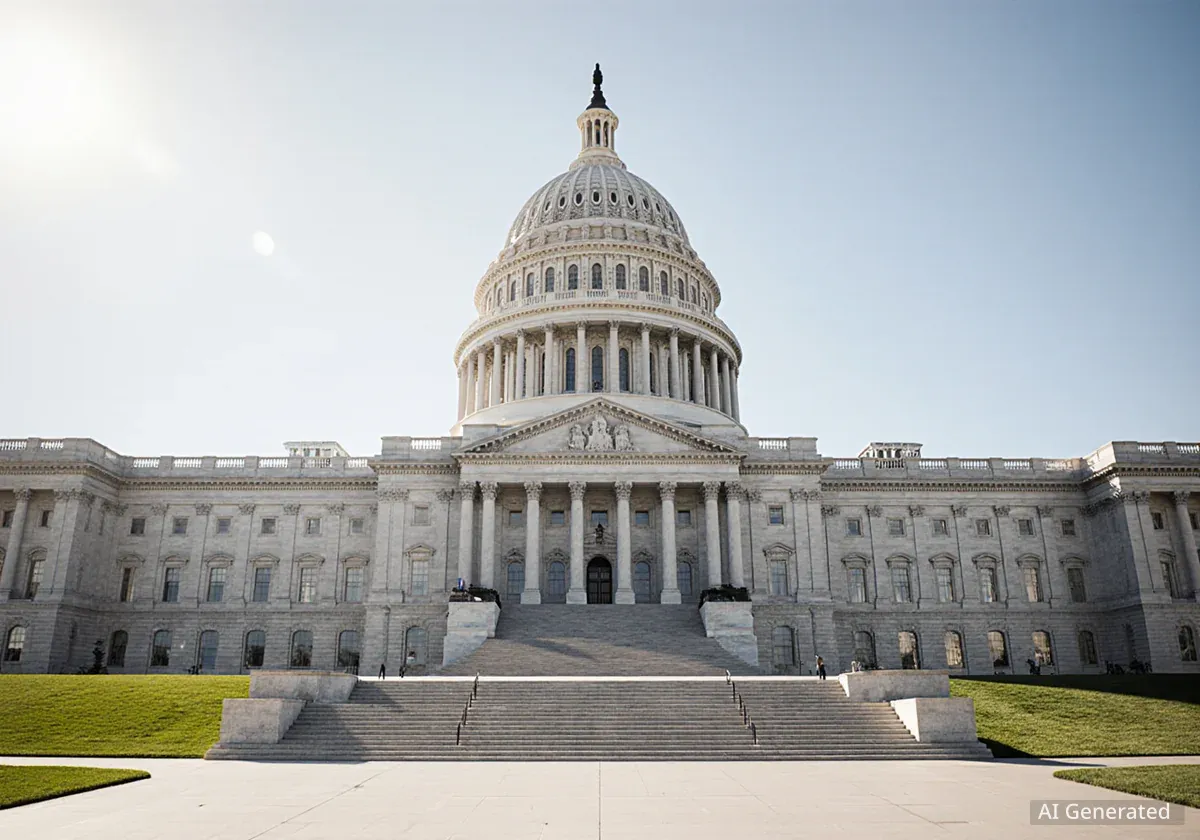Serbia's parliament has passed a special law that paves the way for a controversial real estate development on the site of the former Yugoslav army headquarters in Belgrade, a landmark destroyed during the 1999 NATO bombing campaign. The decision, which facilitates a project linked to an investment firm associated with Jared Kushner, has ignited fierce public debate and opposition.
The legislation, approved Friday in a 130-40 vote, allows authorities to proceed with the development despite ongoing legal challenges and the building's protected status, which was stripped by the government last year. The project plans to transform the iconic ruins into a luxury complex, a move critics argue erases a significant piece of national history and undermines the country's legal framework.
Key Takeaways
- Serbian lawmakers passed a special law, known as Lex Specialis, with a 130-40 vote to fast-track a real estate project.
- The project involves redeveloping the former Yugoslav army headquarters, bombed by NATO in 1999, into a luxury complex.
- The development is backed by Affinity Global Development, a U.S. company linked to Jared Kushner, son-in-law of Donald Trump.
- The law bypasses the site's previously protected status and an ongoing criminal investigation, sparking public protests and accusations of corruption.
A Landmark Law for a Landmark Site
The newly passed law, referred to as a Lex Specialis, is a piece of targeted legislation designed to address a specific situation, in this case, the redevelopment of the military complex. It grants the government the authority to move forward with plans, including demolition, effectively overriding existing legal hurdles.
The government and its supporters in parliament argue the project is a necessary step toward progress. "We are demolishing the ruins in order to build," stated Milenko Jovanov, a lawmaker from the ruling Serbian Progressive Party, during the parliamentary debate. The administration, led by President Aleksandar Vucic, has promoted the development as a significant economic boost and a way to strengthen ties with the United States.
However, the bill itself is notably vague, not explicitly mentioning Kushner's company or the specific details of the proposed development. This lack of transparency has fueled criticism from opposition parties and civil society groups.
The History of the General Staff Building
The former Yugoslav army headquarters, often called the General Staff building, is one of the most prominent examples of post-war modernist architecture in Belgrade. Damaged during the 78-day NATO bombing campaign in 1999, its skeletal remains have stood in the city center for over two decades as a raw and powerful symbol of the conflict. For many Serbians, it represents national resistance against what they view as an unjust aggression.
Details of the Proposed Development
The proposed plan involves a 99-year lease agreement signed between the Serbian government and Affinity Global Development. The project is valued at approximately $500 million and aims to construct a high-end compound on the prime real estate.
The development is expected to feature:
- A luxury hotel
- High-end apartments
- Modern office spaces
- Retail shops
As part of the agreement, developers have reportedly committed to building a memorial complex on the site dedicated to all victims of the NATO bombing campaign. Despite this, the plan has been met with widespread disapproval from architects, historians, and the general public who see the commercialization of the site as an affront to its historical and cultural significance.
Widespread Opposition and Legal Concerns
The path to redevelopment has been fraught with controversy. Before this law was passed, the project stalled after Serbia's organized crime prosecutors launched an investigation. The probe is looking into allegations that documents used to remove the complex's protected heritage status were forged.
Corruption watchdog Transparency Serbia has been a vocal critic, warning that the special law "represents a combination of the two most dangerous forms of corruption — the legalization of law violations and the tailoring of general rules to fit hidden interests in one specific case."
Public sentiment has been equally strong. As lawmakers debated the bill, hundreds of protesters gathered outside the parliament building. They carried banners with messages like, "Culture is not for sale, we will not give up the general staff."
"With the agreement you signed with the most important son-in-law on the planet, you have obliged to tear this down and clear at the cost of Serbia’s taxpayers," Zdravko Ponos, a former army commander-in-chief and now an opposition leader, told the governing party members in parliament.
Another opposition lawmaker, Aleksandar Jovanovic, went further, describing the law as a "crime" that would replace a national heritage site with "casinos and Jacuzzis."
A Pattern of Investment
This is not the only large-scale project in the Balkans linked to Kushner's investment firm. Earlier this year, the government of Albania approved a $1.6 billion plan from the company to develop a luxury resort on a fortified island that dates back to its communist era.
A Symbol of National Identity
The debate over the former army headquarters is about more than just a building; it touches upon deep-seated national feelings. The NATO bombing of Yugoslavia in 1999 remains a sensitive and painful memory for many in Serbia. Anti-NATO sentiment is still prevalent, making the involvement of a prominent American figure in the redevelopment of such a symbolic site particularly polarizing.
For over two decades, the ruins have served as a stark, public reminder of the conflict. While some see a modern development as a sign of moving forward, others view the demolition as an attempt to erase a difficult but important chapter of their history. The government's decision to push the project through with a special law suggests it is determined to see the site transformed, regardless of the legal and public backlash.





